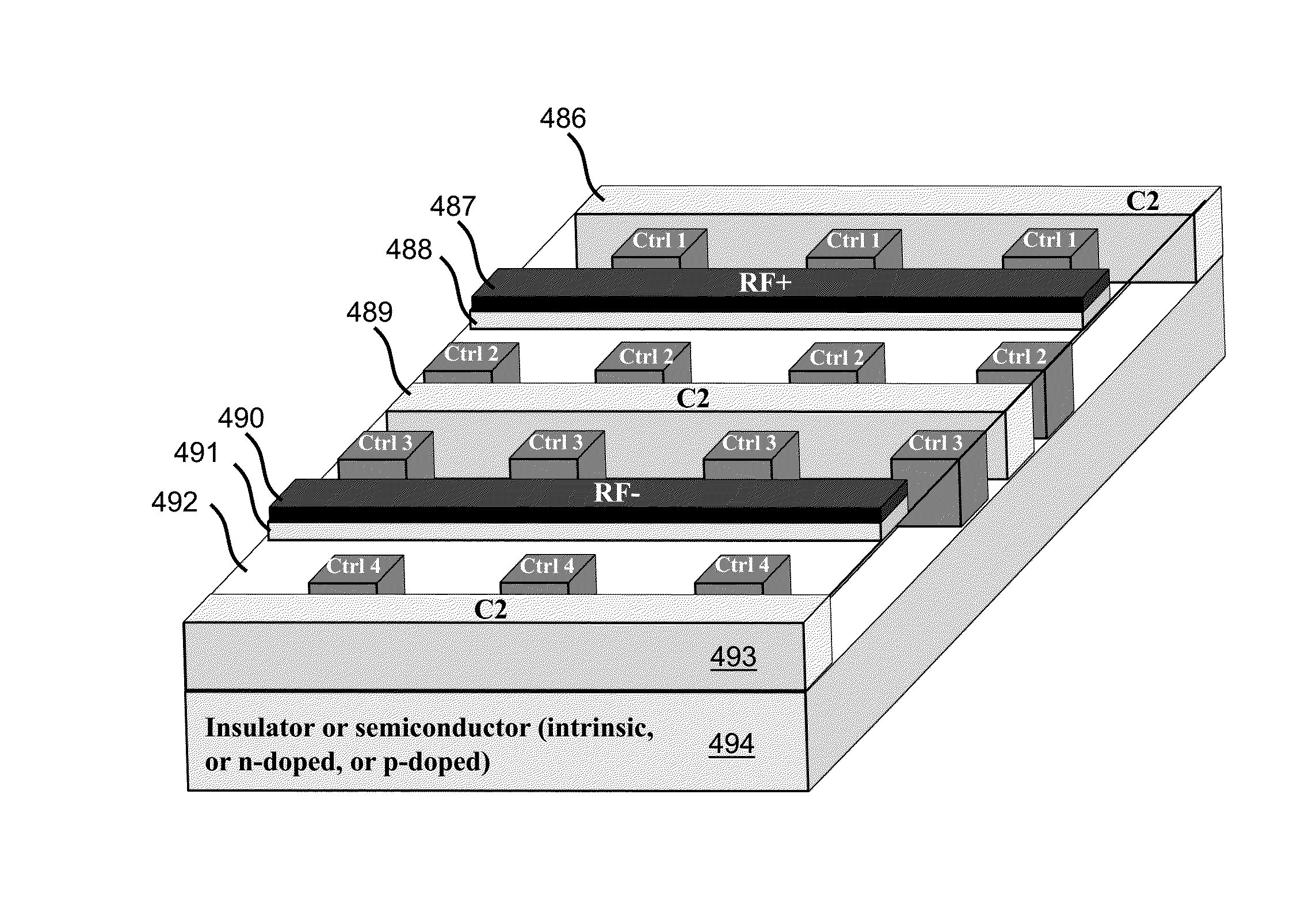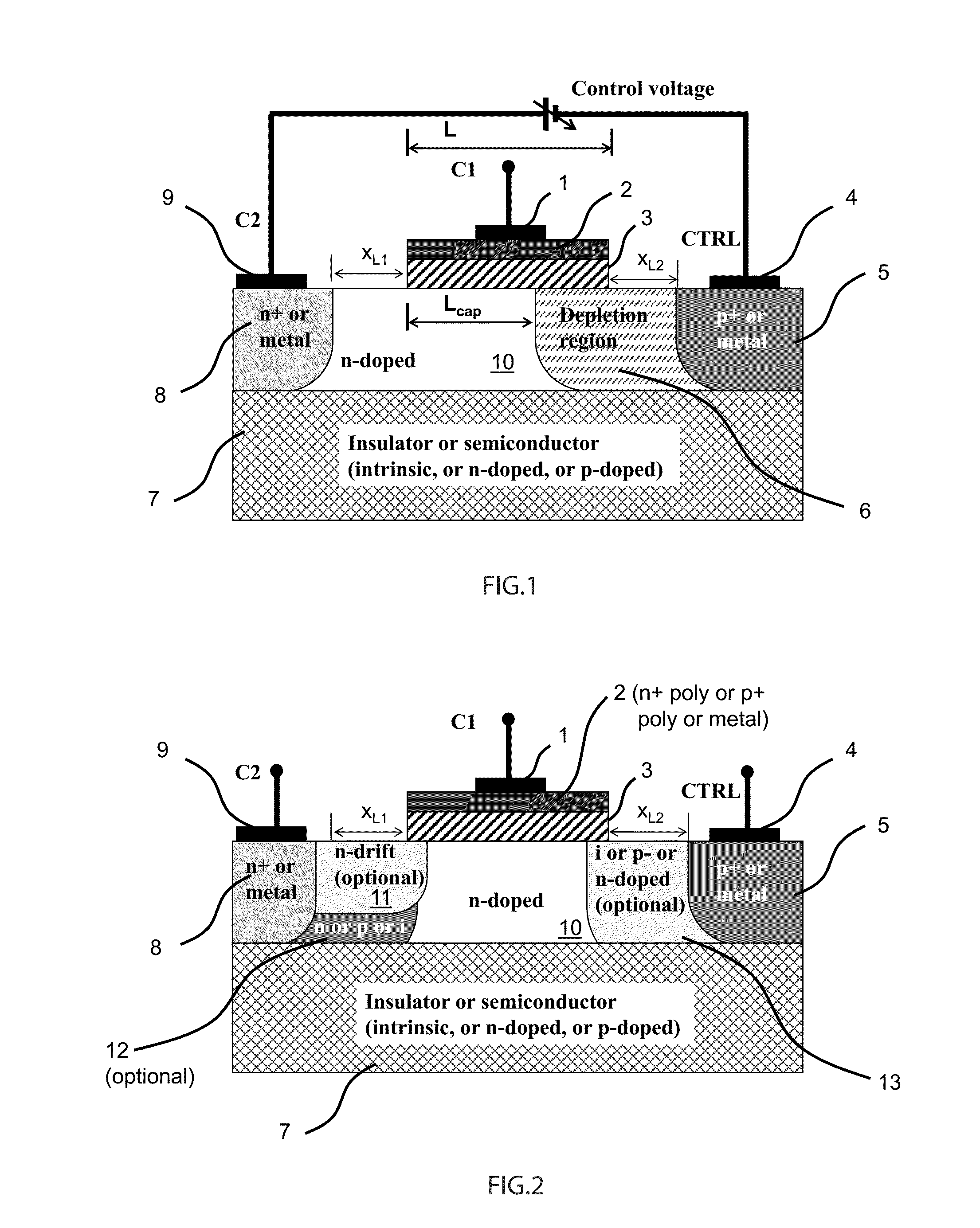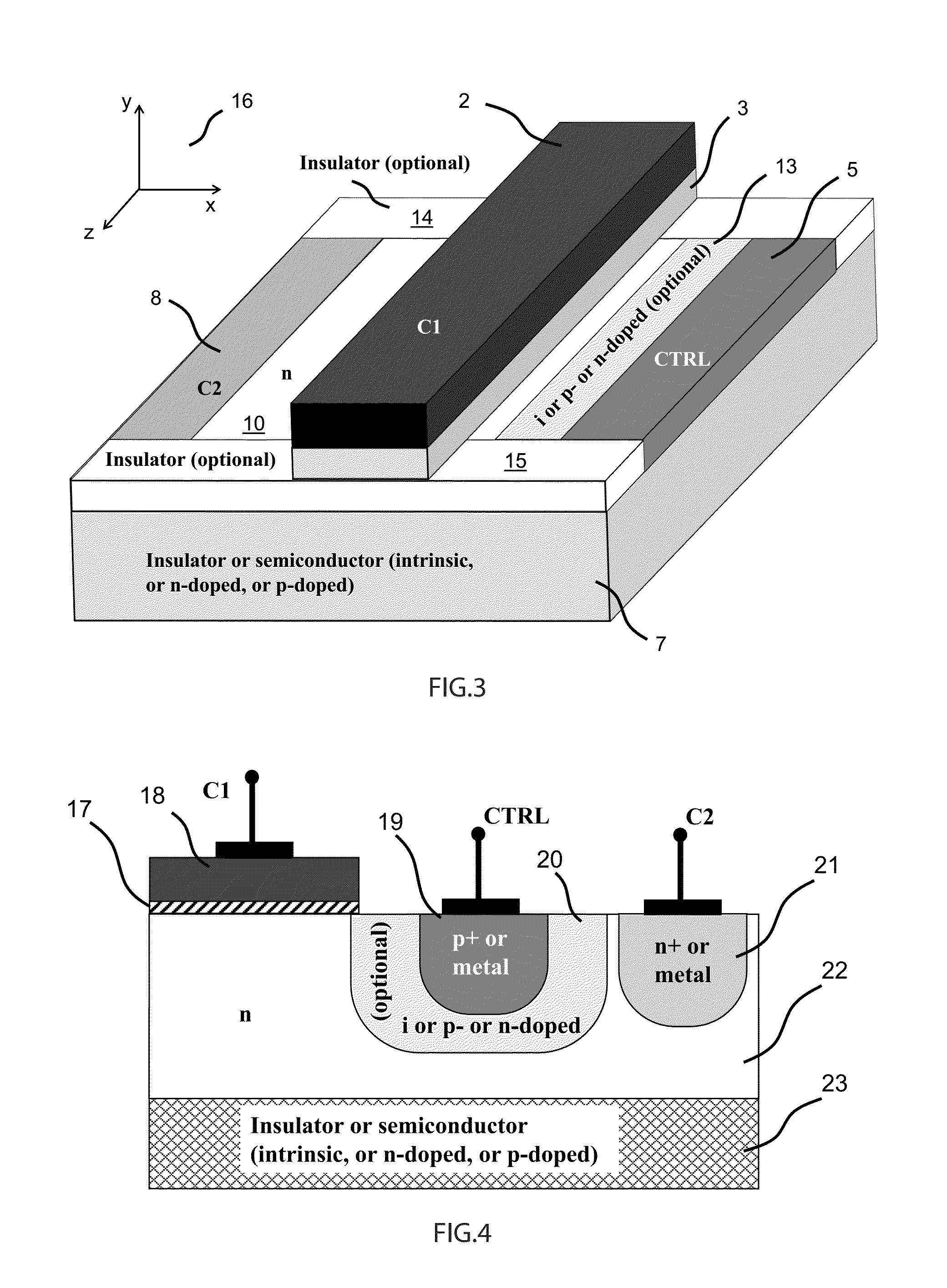Multiple Control Transcap Variable Capacitor
a variable capacitor and multi-control technology, applied in semiconductor devices, instruments, electrical devices, etc., can solve the problems of distorted capacitance value, inability to obtain an extremely high capacitance value, and inability to achieve extremely high capacitance values, so as to prevent distortion and increase the performance of the device
- Summary
- Abstract
- Description
- Claims
- Application Information
AI Technical Summary
Benefits of technology
Problems solved by technology
Method used
Image
Examples
Embodiment Construction
[0174]A FIG. 1
[0175]FIG. 1 is showing the simplest structure of a transcap device as described in the regular patent application U.S. Ser. No. 14 / 456,184 entitled “Three Terminal Variable Capacitor”, filed by the same applicants on Aug. 11, 2014. The pt type region 5 defines the control terminal of the device whereas region 2 and the n+ region 8 are the two terminals of the capacitor. Region 3 corresponds to the capacitor dielectric layer, whereas region 10 is a n-type semiconductor layer. xL1 is the distance between the capacitance plate 2 and the n+ region 8, xL2 is the distance between the capacitance plate 2 and the p+ control region 5, L is the length of the upper capacitance plate 2, whereas LCAP is the effective length of the lower equivalent capacitance plate. The lower capacitance plate is constituted by the neutral region of the semiconductor layer 10, and is connected to the C2 terminal 9 through the n+ region 8.
[0176]The C1 region 2 may be built in semiconductor (with cr...
PUM
 Login to View More
Login to View More Abstract
Description
Claims
Application Information
 Login to View More
Login to View More - R&D
- Intellectual Property
- Life Sciences
- Materials
- Tech Scout
- Unparalleled Data Quality
- Higher Quality Content
- 60% Fewer Hallucinations
Browse by: Latest US Patents, China's latest patents, Technical Efficacy Thesaurus, Application Domain, Technology Topic, Popular Technical Reports.
© 2025 PatSnap. All rights reserved.Legal|Privacy policy|Modern Slavery Act Transparency Statement|Sitemap|About US| Contact US: help@patsnap.com



